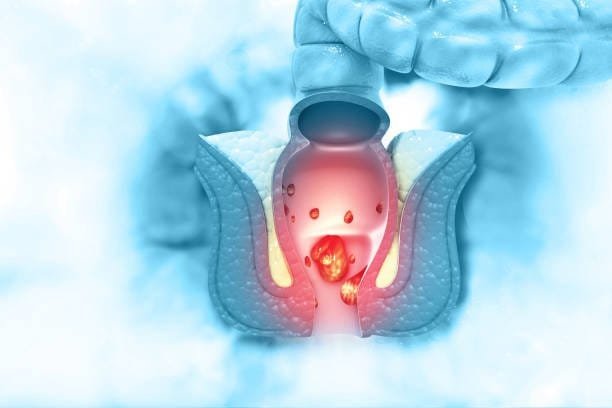Anal cancer
We should talk about something that is not a regular topic of conversation—it is anal cancer. A theme could make a few people wriggle; however, it’s about time we bring the focus to this severe medical issue. While anal cancer will likely never be as normal as a few different sorts, its incidence is on the rise, and information is power.
In this article, we will be able to dive deep into the world of it. We will find out what it is, what causes it, how to identify the signal that an advance notice is on the way, and what can be done. Slowly and steadily you shall get more familiar with this , thus taking charge of your health and potentially letting others who might benefit from this information know.

What are the causes
While the exact cause of anal cancer remains unknown, certain risk factors have been identified. The understanding of what leads to the cancer can be said to be as difficult as trying to solve a risky equation. These risks factors are:
Human Papillomavirus (HPV):
This is the leader when it comes to risk factors for anal cancer. HPV looks similar to the guest who comes to a party uninvited and causes trouble. It is held to be responsible for by far the most significant part of anal cancer occurrences. HPV is available in numerous kinds. Nevertheless, it is important to mention that not everyone with HPV get the cancer.
Sexual action:
Engaging in many sexual encounters or using many sexual partners, as well as practicing unsafe sex through the anus as the receiving partner, can increase your risk of having the cancer.
Weakened immune system:
If your body’s immune system is weakened for whatever reasons, including HIV/AIDS, organ transplants, or other reasons, you may be prone to anal cancer. It is like having a weak protective layer in your house. It simplifies matters for the intruders (here the concerned disease cells) to enter.
Smoking:
That’s one more reason to come up with measures to phase out the vice. The nasty things in tobacco may modify the DNA in cells throughout your robust petty all through your body, including those in your rear. It is similar to repeatedly exposing the body to corrosive fumes.
Age:
One primarily coincides with one’s age. As one grows older, his/her risk of anal cancer is most likely to increase. Based on common wisdom, most cases are worked on people over the age of fifty. Even though we cannot revisit the past, tracking this risk helps to stay vigilant.
Other malignant growths:
If you have had a cervical, vulvar, or vaginal disease previously, you are at a higher risk of anal cancer. It’s like your body has once been inclined toward certain types of cancer, and for this reason, you become vulnerable to others.
Here, remember, when you have at least one of the risk factors, you will not be contracting anal cancer. It’s a bit like taking a shot in the dark where these variables accumulate in favor of chances. To our good fortune, though most of these elements are within our purview reality, thereby making it possible for us to lower our risk.

Signs and Symptoms
If anal cancer is diagnosed early, then everything becomes much better as far as treatment is concerned. But in its early stages, this subtle illness is asymptomatic and does not seem to have any symptoms at all. That is the reason why it is important that one know about possible advance notice symptoms and do not ignore them. Here are a few side effects to look out for:
- Bleeding from the rear-end or rectum: This is often the only sign of anal cancer most of the time. Do not think that it is just piles; get to have it checked.
- Itching or release from the butt: Even though these side effects may result from various factors, they should not be dismissed, especially if they persist.
- A knot or mass at the anal opening: If you get any new lump or any growth or enlargement, this is the right time to visit a doctor.
- Changes in your bowel movements: This may encompass constipation or a feeling that your colon is not evacuating appropriately.
- Swollen lymph hubs in the anal region: This could prove that the cancer has metastasized lymph nodes in the local area. In this case, the nodes resemble small beans.
- Leaking stool.
It is important to remember that these symptoms can be caused by other, less challenging situations as well. Nonetheless, if any of them is persistent, you need to see your doctor in this regard. As for anal cancer, we can only state that it is in every case better to be protected than to be heartbroken. One more thing to give a shot: do not let your pride hinder you from seeking medical attention; it’s far better than stressing over a sickness.
Treatment
If indeed there is a probability that you have been diagnosed with anal cancer, then cheer up. Now treatment options have improved quite a lot, and new advancements in this field are occurring constantly. The approach to management of anal cancer is something like a battle plan that is unique to your situation.
Chemoradiation:
It is most of the times the first option to the management of anal cancer. With regard to chemotherapy and radiation treatment, it centralizes it. Think of it as this one-two punch against disabling cells. Chemo drugs ‘soften’ the disease cells so that the radiation can kill them more easily. This is the main working of chemotherapy and radiation therapy.
Surgery:
Occasionally, especially if the disease is small, or in any case, if chemoradiation fails, surgery may be needed. Again, this could range from removing a small cancer to more complex surgery like Laparoscopic abdominoperineal resection, where a surgeon has to remove the rear end, rectum, and a part of the colon.
Immunotherapy:
The indeed therapeutic strategy stands supportive of one’s own immune system to fight the disease. This appears to be a good way of politicizing the body’s military to be able to identify and hunt the enemy down.
Targeted treatment:
These fresher medications are known to be particular to disease cells or the processes that help such cells mature. It is like a wise rocket to aim at the defective area of the body that has the malignant growth.
Clinical trials:
It is possible that for some patients, participation in the clinical trial can be an option. These trial tests are used for new medicines or new combinations of existing medicines.
It is very important to discuss with your doctor expected other chances and consequences in the long-term of the treatment. Some drugs can affect inside capacity or sexual health, so communicating openly about those matters is possible.
Preventive measures
Although it is impossible to completely eliminate the risk of developing anal cancer, there are lots of things that can be done to tilt the odds in our favor. Prevention is like constructing a fortress within one to protect one’s health. Here are a few procedures to assist with lessening your gamble:
HPV immunization:
This forms part of the uniqueness in early identification of anal cancer. This vaccine can protect against the types of HPV likely to lead to anal cancer. This is recommended to both young men and young ladies at the age of eleven or twelve years.
Practice safe sex:
Using condoms may also help in the reduction of HPV transmission risk. This is similar to the safety belt—you have it fastened even as it feels like it will not make much of a difference in the long run.
Don’t smoke, or quit assuming you do:
This might be one of the most perfect approaches to your overall health, including decreasing your danger of anal cancer.
Get standard check-ups: In case you are at high risk of anal cancer, then you need to discuss your screening options with your doctor. Some experts recommend normal backside Pap smears for the high-risk individuals.

Conclusions
It will unlikely be a theme that we would be comfortable talking about over supper, yet it is a conversation that we really want to have: anal cancer. That way we are in a better position to meet this challenge by understanding what the causes are, how we perceive the side effects, and what the treatment options are. The more so, by going to excessive lengths to prevent anal cancer, we can decrease our risk and preserve our health.
Thus the saying, ‘knowledge is power’ in as much as it applies to anal cancer. You can, however, talk about it with your friends, family, and other medical service suppliers. If you emerge with any odd effects, get a point of informing them looked at. It often helps if it is identified early, as this can go a long way in boosting things in the treatment outcomes.
FAQs:
Can you still catch anal cancer even if you have not had anal sex even once in your lifetime?
Indeed, you can. Although certain sexual activities increase the risk of anal cancer, the disease can develop in anybody, irrespective of their sexual history. Other risk factors, including HPV disease, smoking, or a weak invulnerable framework, can similarly lead to the advancement of anal cancer.



